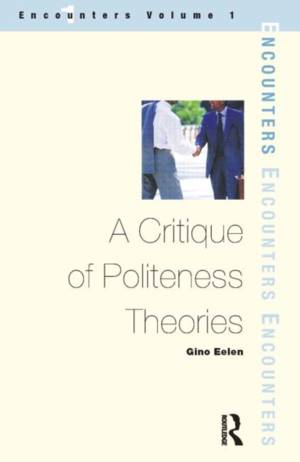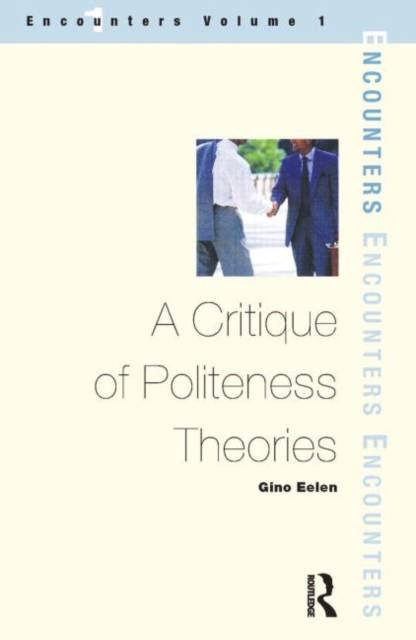
- Afhalen na 1 uur in een winkel met voorraad
- Gratis thuislevering in België vanaf € 30
- Ruim aanbod met 7 miljoen producten
- Afhalen na 1 uur in een winkel met voorraad
- Gratis thuislevering in België vanaf € 30
- Ruim aanbod met 7 miljoen producten
Zoeken
€ 54,45
+ 108 punten
Uitvoering
Omschrijving
As a sociolinguistic phenomenon that connects language and its users to the social world that surrounds them, politeness can provide insights into the very structure of social reality and the process by which it is established and maintained. And through its focus on ethical aspects of social interaction, it can expose the fundamental nature and the inner workings of morality in our everyday lives. Although a highly specific subject matter, politeness therefore touches on issues far beyond its immediate borders. In a critical state-of-the-art review of the field, this book examines the extent to which the potential impact of politeness has been explored so far. Through a metatheoretical analysis of epistemological, methodological, social and psychological ideologies prevalent in mainstream politeness theory, it offers an overview of sociolinguistic thinking about language and social reality during the past quarter of a century. Eelen's analysis of the literature reveals a coherent and consistent ideology underlying the entire field, but also shows how this ideology has caused scientific theory to miss out on many important aspects of the reality of everyday life. His examination of the relationship between science and commonsense thinking, between scientific and everyday notions of politeness, draws attention to issues which remain untouched by current theoretical models and opens up avenues of research hitherto left unexplored.
Specificaties
Betrokkenen
- Auteur(s):
- Uitgeverij:
Inhoud
- Aantal bladzijden:
- 298
- Taal:
- Engels
- Reeks:
Eigenschappen
- Productcode (EAN):
- 9781900650403
- Verschijningsdatum:
- 1/02/2001
- Uitvoering:
- Paperback
- Formaat:
- Trade paperback (VS)
- Afmetingen:
- 155 mm x 231 mm
- Gewicht:
- 358 g

Alleen bij Standaard Boekhandel
+ 108 punten op je klantenkaart van Standaard Boekhandel
Beoordelingen
We publiceren alleen reviews die voldoen aan de voorwaarden voor reviews. Bekijk onze voorwaarden voor reviews.











